
Harlan Jay Ellison was an American writer, known for his prolific and influential work in New Wave speculative fiction and for his outspoken, combative personality. His published works include more than 1,700 short stories, novellas, screenplays, comic book scripts, teleplays, essays, and a wide range of criticism covering literature, film, television, and print media.
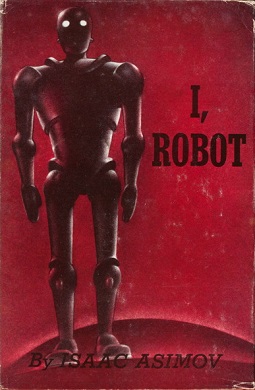
I, Robot is a fixup collection made up of science fiction short stories by American writer Isaac Asimov. The stories originally appeared in the American magazines Super Science Stories and Astounding Science Fiction between 1940 and 1950 and were then compiled into a single publication by Gnome Press in 1950, in an initial edition of 5,000 copies.
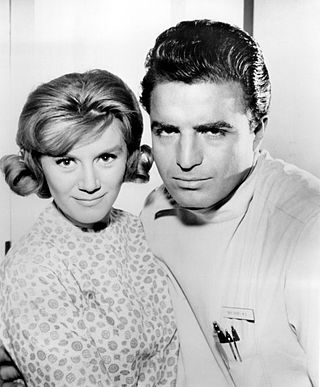
Ben Casey is an American medical drama television series that aired on ABC from 1961 to 1966. The show was known for its opening titles, which consisted of a hand drawing the symbols "♂, ♀, ✳, †, ∞" on a chalkboard, as cast member Sam Jaffe said "Man, woman, birth, death, infinity." Neurosurgeon Joseph Ransohoff served as a medical consultant for the show.
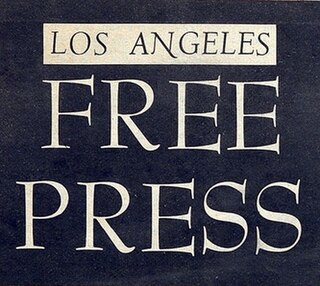
The Los Angeles Free Press, also called the "Freep", is often cited as the first, and certainly was the largest, of the underground newspapers of the 1960s. The Freep was founded in 1964 by Art Kunkin, who served as its publisher until 1971 and continued on as its editor-in-chief through June 1973. The paper closed in 1978. It was unsuccessfully revived a number of times afterward.

Royal Edward Dano Sr. was an American actor. In a career spanning 46 years, he was perhaps best known for playing cowboys, villains, and Abraham Lincoln. Dano also provided the voice of the Audio-Animatronic Lincoln for Walt Disney's Great Moments with Mr. Lincoln attraction at the 1964 World's Fair, as well as Lincoln's voice at the "Hall of Presidents" attraction at Disney's Magic Kingdom in 1971.
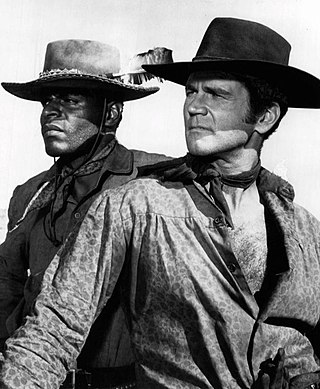
The Outcasts is an American Western television series, appearing on ABC in the 1968–69 season. The series stars Don Murray and Otis Young. It is most notable for being the first television Western with an African American co-star.
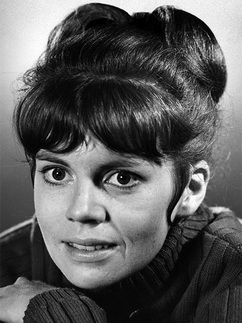
June Harding was an American actress who appeared in several 1960s TV shows. She is best remembered for her role opposite Hayley Mills and Rosalind Russell in the 1966 film The Trouble with Angels. Like Mills, Harding did not appear in the film's sequel, Where Angels Go, Trouble Follows.
Jove Books, formerly known as Pyramid Books, is an American paperback and eBook publishing imprint, founded as an independent paperback house in 1949 by Almat Magazine Publishers. The company was sold to the Walter Reade Organization in the late 1960s. It was acquired in 1974 by Harcourt Brace which renamed it to Jove in 1977 and continued the line as an imprint. In 1979, they sold it to The Putnam Berkley Group, which is now part of the Penguin Group.

Wonderland is an American medical drama television series created by Peter Berg that aired on ABC. It depicted daily life in a mental institution from the perspectives of both the doctors and patients. Only two episodes aired on ABC during its original two-week run, March 30 and April 6, 2000. DirecTV aired all eight filmed episodes on its channel The 101 Network starting January 14, 2009. In 2014, the entire series was available for free on Hulu.

The Young Lawyers is an American legal drama that was aired on the ABC network for one season from September 21, 1970, until March 24, 1971. Starring Lee J. Cobb, Zalman King, Judy Pace and Phillip Clark, the show was a part of the network's 1970–71 lineup.
A bat phone or batphone, in popular jargon, is a private telephone number for important telephone calls handled at high priority. The term is also used to describe the use of more than one mobile phone, with the "bat phone" reserved for a specific purpose. The name Bat-Phone was popularized by the Batman television series starting in 1966, when it was depicted as a red phone that Commissioner Gordon used to summon the superhero Batman in emergencies, and as the red phone mounted inside the Batmobile, the car driven by Batman. Technology journalists have also used "Bat Phone" to describe devices that are novel in appearance, or have a connection to the Batman franchise.
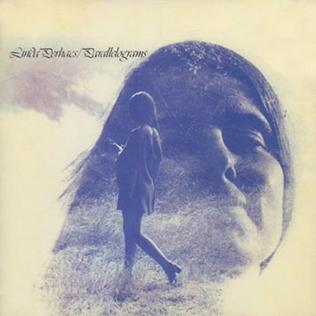
Parallelograms is an album by American psychedelic folk singer Linda Perhacs. It was produced by Leonard Rosenman. Her first and only album until the release of The Soul of All Natural Things in 2014, it was all but completely ignored when originally released on Kapp Records in 1970. Discouraged by the lack of commercial attention and the label's reluctance to promote the album, Perhacs returned to her career as a dental hygienist. In the 30 or so years that followed, the album gradually developed a cult following.
Charles Joseph Sophy is an American psychiatrist. He is a former medical director for the County of Los Angeles Department of Children and Family Services. He is also a member of the Dr. Phil show's advisory board and is a frequent guest on the show and other TV shows and stations including CNN, Today, HLN, and Dr. Drew. He has many celebrity clients and has worked with Paris Hilton, Michael Jackson and Mel B.

In Time is a 2011 American science fiction action film written, produced, and directed by Andrew Niccol. Justin Timberlake and Amanda Seyfried star as inhabitants of a society that uses time from one's lifespan as its primary currency, with each individual possessing a clock on their arm that counts down how long they have to live. Cillian Murphy, Vincent Kartheiser, Olivia Wilde, Matt Bomer, Johnny Galecki, and Alex Pettyfer also star. The film was released on October 28, 2011, and grossed $174 million against a $40 million budget. It received mixed reviews from critics, who praised the premise while criticising the execution.

Cracked is a Canadian police crime drama television series which aired from January 8 to November 25, 2013 on CBC Television. The series was created by writer Tracey Forbes and Toronto Emergency Task Force officer Calum de Hartog, and was executive produced by Peter Raymont and Janice Dawe of White Pine Pictures. It premiered on January 8, 2013, and aired new episodes through November 25, 2013.
Dial Hot Line is a 1970 American drama made-for-TV film, starring Vince Edwards, Chelsea Brown, Felton Perry, June Harding and Kim Hunter. It originally aired on March 8, 1970 in the ABC Movie of the Week space.
Hotline is a 2014 documentary feature film written and directed by Tony Shaff. The film explores the intense connections that are made between strangers over the telephone, and explores these anonymous conversations people are often too hesitant to have with the people closest to them. The film stars Miss Cleo, Jeff Ragsdale, Jamie Blaine, and Tonya Jone Miller.
This is a list of works by Harlan Ellison (1934–2018). It includes his literary output, screenplays and teleplays, voiceover work, and other fields of endeavor.

The Veterans Crisis Line is a United States–based crisis hotline for military veterans, service members, their families, and caregivers. The service is available 24/7 via the toll-free hotline number 988. Callers press 1 on their keypad to connect to the Veterans Crisis Line instead of the 988 Suicide & Crisis Lifeline, which shares the same number. It can also be reached by texting the SMS number 838255 or via online chat on the hotline's website.
One of Those People that Live in the World is a 1973 New Zealand film directed by Paul Maunder.












